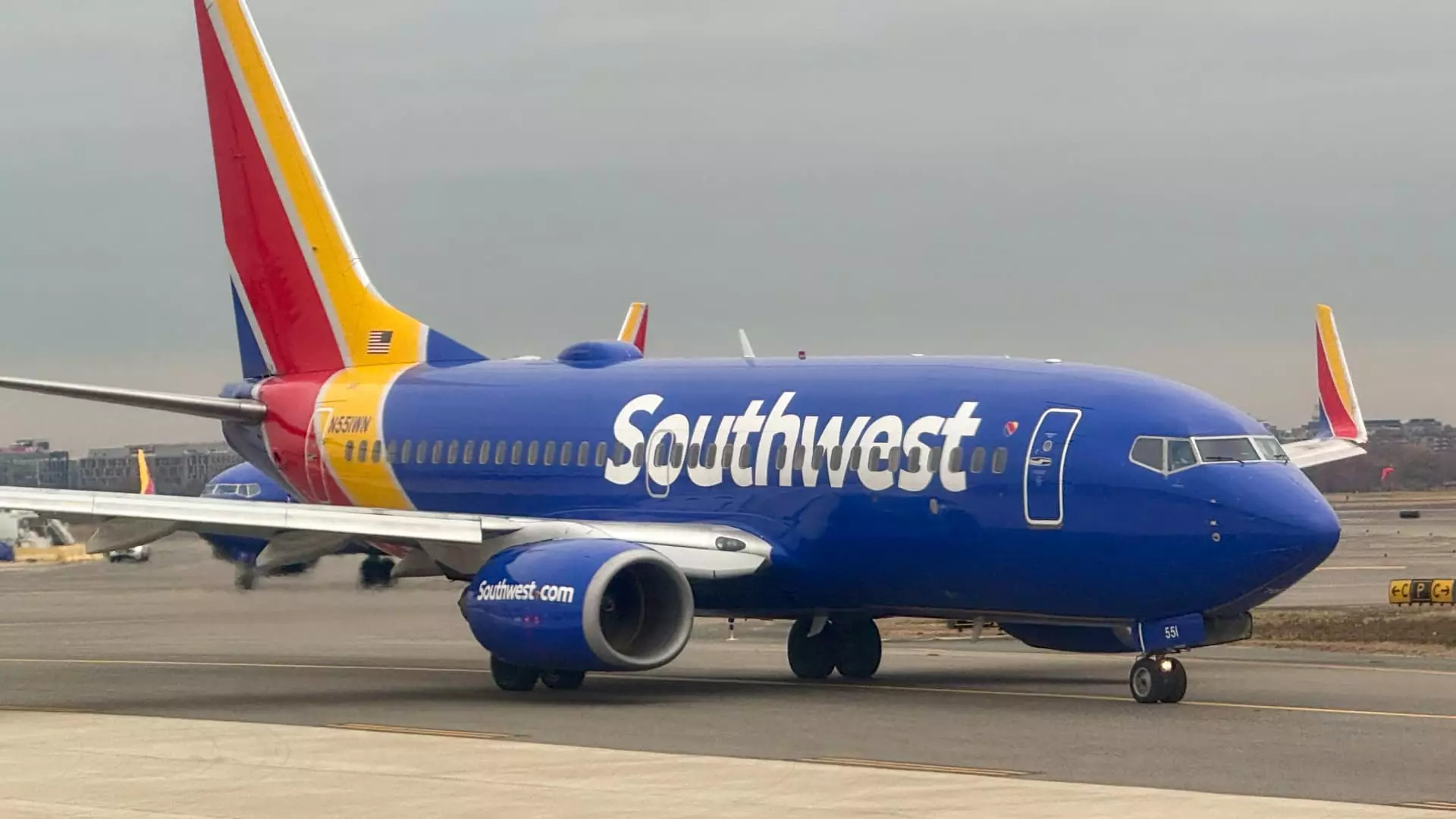In a startling announcement, Southwest Airlines revealed a significant reduction in its corporate workforce, slashing approximately 15% of its corporate jobs, amounting to around 1,750 positions. This unprecedented decision, according to CEO Bob Jordan, is a response to the current economic landscape and aimed at streamlining operations for greater efficiency. As the airline navigates these dramatic changes, the implications for the company, its employees, and the industry at large warrant closer examination.
Analyzing the Economic Rationale
The assertion of saving $210 million this year and an estimated $300 million by 2026 underscores the airline’s urgent need to reassess its financial strategy. Layoffs in the corporate sector are rarely taken lightly, particularly in an industry already grappling with the aftershocks of the pandemic and increased competition. By trimming its workforce, Southwest seeks to position itself as a more nimble competitor, capable of responding swiftly to market dynamics. While this decision aims to benefit the company in the long run, it raises critical questions about the human cost of such financial strategies.
Southwest Airlines’ job cuts also follow a significant shift in its governance, influenced by activist investors keen on transforming the airline’s operational ethos. The involvement of Elliott Investment Management, which gained five board seats, highlights a growing trend within corporations where investor activism plays a crucial role in strategic decisions. With the pressures for greater returns, Jordan’s push for a leaner organizational structure reflects broader industry trends where profit margins are relentlessly scrutinized.
Operational Changes and Their Impact
Beyond layoffs, Southwest has implemented several cost-cutting strategies, including a hiring freeze and the cessation of its long-standing team-building initiatives. These changes indicate a broader shift in corporate culture, where the emphasis on teamwork and employee morale is being overshadowed by financial imperatives. Additionally, the airline’s pivot away from its over 50-year tradition of open seating to assigned seats represents not just a logistical change but also a potential shift in customer experience perceptions.
While Jordan’s memo suggests an intention to maintain clarity and urgency in operations, the fallout from job cuts could reverberate through Southwest’s corporate culture. The layoffs will take effect toward the end of April, and while affected employees will receive pay and benefits during the transition, the long-term psychological impact on remaining staff cannot be overlooked. Employee morale could take a significant hit, leading to potential productivity declines and a culture of uncertainty within the organization.
As Southwest Airlines embarks on this bold restructuring journey, the dual objectives of financial efficiency and operational agility must be balanced against the human element of their workforce. The decision to reduce jobs, although positioned as a strategic necessity, prompts a critical reevaluation of the cost of such changes in both ethical and practical terms. Ultimately, as the airline navigates this pivotal period, its ability to integrate these potentially disruptive changes while preserving its core values will determine its long-term viability in a competitive landscape.
- The Rise of Aberlour 18: A Triumph in the World of Scotch - June 24, 2025
- The Departure of Captain Kate McCue: A New Chapter Begins - June 24, 2025
- Transforming Travel: The Promising Future of NDC Adoption in the Aviation Sector - June 24, 2025


Leave a Reply